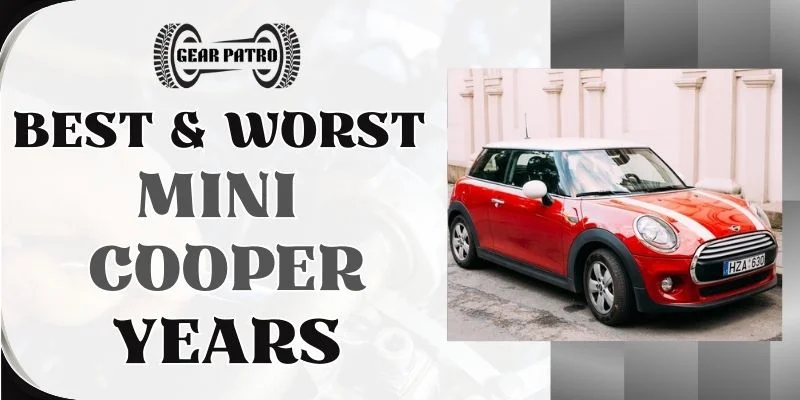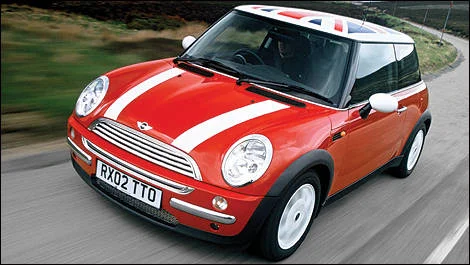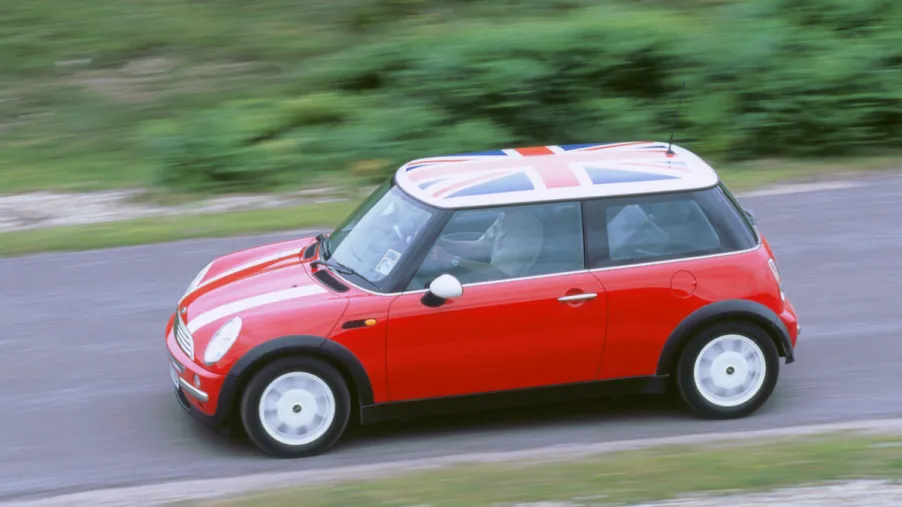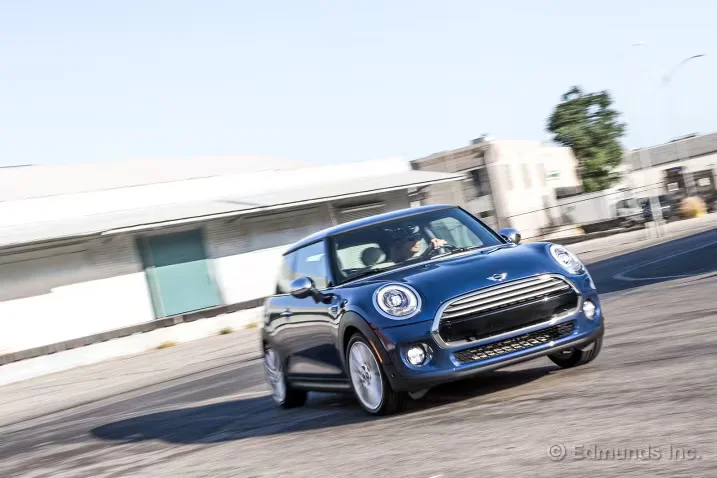In this guide, I have categorized the best and worst years of each Mini Cooper from 2002 to the current model.
The following guide will examine the newest Mini Cooper generations, revealing the best and worst years for purchasing a Mini Cooper.

A thorough review of reputable sources, such as NHTSA and Consumer Reports, ensures that the information we provide is accurate and reliable.
Each Mini Cooper generation will be examined separately, examining powertrain options, reliability, recalls, and average resale price.
We’ll dive right in!
Mini Cooper Generations
With its small size, nimble handling, and stylish design, the Mini Cooper became an emblem of British automobile design in the late 1950s. In addition to its front-wheel-drive layout, the car offers excellent fuel efficiency and spacious interiors.
A variety of BMW-Mini models are available.
Specifically, this article will examine both the best and worst years for Mini Cooper hatchback production (Mini Hatch and Mini Hardtop in the U.S.).
From the hatchback’s re-introduction in 2002, the table below provides an overview of the different generations.
| Generation | Years |
| 1st Generation (R50) | 2002-2006 |
| 2nd Generation (R56) | 2007-2013 |
| 3rd Generation (F56) | 2014-Present |
Considering the different design, performance, and technological advances offered by each generation, generational distinctions can be a powerful influence on a buyer’s decision.
Mini Cooper Best, Neutral, and Worst Years
According to our rankings and categorizations of the best, neutral, and worst Mini Cooper years, we considered the following factors:
On the basis of our extensive research, we have categorized each Mini Cooper model year into best, neutral, and worst years.
| Generation | Best Years | Neutral Years | Worst Years |
| 1st Generation (R50) | 2006 | N/A | 2002 2003 2004 2005 |
| 2nd Generation (R56) | 2010 2011 2012 2013 | 2009 | 2007 2008 |
| 3rd Generation (F56) | 2018 2019 2020 2021 2022 2023 2024 | 2016 2017 | 2014 2015 |
There were typically no significant flaws or notable strengths identified with “Neutral Years” in terms of performance, reliability, or owner satisfaction.
There are a number of factors that can affect a car’s reliability rating, including NHTSA recalls. A vehicle with a high number of complaints and recalls usually has a lower level of reliability.
We’re going to examine the best, neutral, and worst years for Mini Coopers.
Best & Worst Years for Mini Cooper 1st Generation (2002-2006)
A new generation of Mini Coopers was introduced in 2002 under the BMW management, reviving the classic Mini for a new century. Incorporating contemporary automobile technology, it maintained the iconic design and compact size of the original.

Among Mini Cooper’s current generation, 2006 is the most popular year, while 2002-2005 are the most problematic.
The Best Year: 2006
The 2006 Mini Cooper is widely considered to be the best model year of the first generation.
The Cooper S came with a turbocharged engine with 168 horsepower, while the 1.6L Tritec produced 115 horsepower.
In the base model, the fuel economy was impressive, coming in at 24 mpg in the city and 33 mpg on the highway.
In addition to the standard five-speed manual transmission, the Mini Cooper also featured a continuously variable transmission (CVT) as an option.
In spite of a recall related to the front passenger airbag, the 2006 model generally received positive reviews for its increased build quality and durability.
A number of advancements in safety and technology also included a more refined interior control system and improved airbag systems. This enhanced the overall driving experience.
The Worst Years: 2002, 2003, 2004, 2005
There were a number of issues with the early first-generation Mini Cooper model years, particularly in the years 2002 to 2005, so it is advisable to steer clear of these model years.
An electro-hydraulic power steering failure was notorious for these models, which caused a significant recall.
Many Mini Cooper owners reported transmission failures, particularly in the 2002 and 2003 models.
Recalls compounded these problems, such as one for a power steering pump that was prone to malfunctions and potentially causing fires.
Due to these persisting issues, potential buyers and enthusiasts were less inclined to purchase these model years.
Mini Cooper recalls and complaints from 2002, 2003, 2004, and 2005 can be found at the NHTSA website.
Best & Worst Years for Mini Cooper 2nd Generation (2007-2013)
In 2007, Mini introduced the second generation of its Mini Cooper, which offered improved engineering and design.

As a rule, Mini Cooper’s 2007 and 2008 model years are the worst of its second generation that should be avoided at all costs, while 2010-2013 are its most reliable and best years.
The Best Years: 2010, 2011, 2012, 2013
In terms of performance and reliability, the 2010-2013 Mini Cooper years were the best.
Each of these models came equipped with a 1.6L Prince four-cylinder engine, with the Cooper S offering a turbocharged variation for greater performance.
A turbocharged engine in the Cooper S boosts output to 181 horsepower from the base engine’s 121 horsepower.
As far as fuel economy goes, the base model is estimated to get 28 mpg in the city and 37 mpg on the highway.
An engaging driving experience is provided by either the six-speed manual or the six-speed automatic transmission options.
The last few years have also seen advances in interior quality and technology, such as infotainment system updates as well as better safety features, including enhanced airbag systems and dynamic stability control.
The Neutral Year: 2009
There are some improvements over the earlier models, but the 2009 Mini Cooper does not reach the same levels as the later models.
The 2009 Mini Cooper does show some improvements over its predecessors, but it falls short of its more recent counterparts
While less frequent, there were still some problems with this model that plagued the earlier models, including excessive oil consumption and timing chain issues.
The Worst Years: 2007, 2008
As a result of our research, the 2007 and 2008 Mini Cooper models were plagued by a number of reliability and ownership satisfaction issues.
A variety of engine issues were known to plague these models, including oil leaks, water pump failures, and timing chain problems, often resulting in serious engine damage.
During these years, Ford recalled vehicles due to problems with the electric auxiliary water pump and the footwell control module on the driver’s side.
In addition to these problems, the 2007 and 2008 Mini Coopers have a high repair and maintenance cost, making them the least reliable years within the second generation of Mini Coopers.
Check out the Mini Cooper recalls and complaints from NHTSA for 2007 and 2008.
Best & Worst Years for Mini Cooper (Hardtop) 3rd Generation (2014-Present)
In 2014, Mini Cooper’s third generation was introduced, featuring refined styling, improved interior space, and enhanced handling, further cementing its position as a leader in the small car market.

Since there were many recalls in 2014 and 2015, we considered those to be the worst Mini Cooper years you should avoid, while 2018 to 2024 are the best.
The Best Years: 2018, 2019, 2020, 2021, 2022, 2023, 2024
In terms of quality, reliability, and owner satisfaction, the 2018 model year was one of the best years for the third-generation Mini Cooper.
For the base model, you can choose from a 1.5L B38A15 I3 turbocharged engine producing 134 horses, and for the Cooper S, you can choose between a 2.0L B48A20 I4 turbo engine available with 189 horses.
Based on the base model, it has a fuel economy of 28 mpg in the city and 38 mpg on the highway.
This vehicle is available with a six-speed manual transmission or a seven-speed dual-clutch automatic transmission, both of which provide a more engaging and responsive driving experience.
Aside from technology and safety improvements, these vehicles also had improved interior materials and updated infotainment systems, which made them the most sought-after of the third generation.
The Neutral Years: 2016, 2017
A neutral rating is assigned to the 2016 and 2017 Mini Cooper models.
During these years, the best engines and transmissions were still available, ensuring that the performance was decent and the efficiency was decent.
In spite of these improvements, a number of issues from earlier years remained unresolved, including transmission and engine issues.
They lacked the latest updates and enhancements that characterized the best years, even though they did not have the significant problems that plagued the worst years.
The Worst Years: 2014, 2015
There were a number of reliability issues with the third-generation Mini Cooper in the worst years, especially 2014 and 2015.
There have been numerous reports of engine and transmission problems, including cracked engine mounts and broken crankshaft bearings.
There were also recalls for these models involving airbags and a lack of side-impact crash performance in the back seat.
As a result of these problems, coupled with the high repair costs and frequent maintenance, you should avoid these model years within the third generation of Mini Coopers.
Complaints and recalls for the 2014 and 2015 Mini Cooper can be found on the NHTSA website.
Best & Worst Volkswagen Jetta Years | Years To Avoid
Best & Worst Porsche Cayenne Years | Years To Avoid
Best & Worst GMC Acadia Years | Years to Avoid
Conclusion
Choose a Mini Cooper from the later years in each generation, particularly the more reliable 2006 model in the first generation, the 2010-2013 model in the second, and the 2018 model in the third generation. Conversely, don’t bother with the earlier years of each generation since they tend to be more troublesome.
In your opinion, which Mini Cooper generation best captures the essence of the iconic car?
I look forward to hearing your thoughts in the comments!
